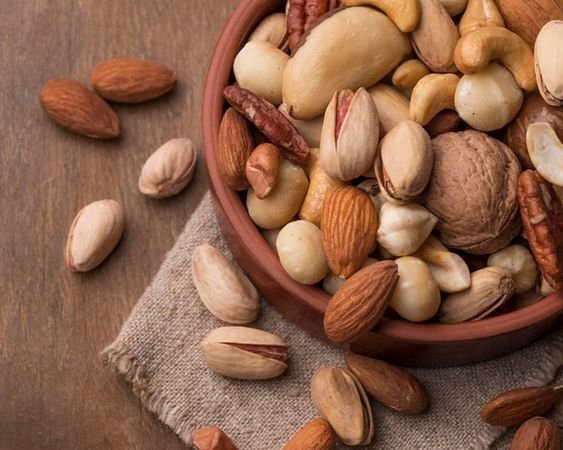
Superfoods are nature’s nutritional powerhouses, packed with vitamins, minerals, and antioxidants that promote health and vitality. Incorporating these nutrient-rich foods into your diet can boost immunity, improve digestion, and enhance overall well-being. In this guide, we’ll explore some of the top superfood subcategories to help you harness their potential for optimal health.
Berries:
Berries such as blueberries, strawberries, and raspberries are renowned for their abundance of antioxidants, which play a crucial role in fighting oxidative stress and inflammation within the body. These vibrant fruits are not only visually appealing but also pack a nutritional punch. Loaded with fiber, vitamins, and phytochemicals, they contribute significantly to overall health and well-being. The antioxidants found in berries help neutralize harmful free radicals in the body, thereby reducing cellular damage and lowering the risk of chronic diseases such as heart disease and cancer. Additionally, they possess anti-inflammatory properties, which can alleviate inflammation throughout the body, promoting better health and reducing the risk of various conditions. Moreover, berries are rich in fiber, which is essential for digestive health and maintaining healthy cholesterol levels. They aid in regulating bowel movements and promoting a feeling of fullness, which can support weight management efforts. Furthermore, the vitamins present in berries, such as vitamin C and vitamin K, play crucial roles in supporting the immune system, promoting collagen production for skin health, and aiding in blood clotting, respectively. Additionally, berries contain various phytochemicals, such as flavonoids and polyphenols, which have been linked to numerous health benefits, including improved cognitive function, protection against age-related decline, and reducing the risk of chronic diseases. Incorporating a variety of berries into your diet can contribute to overall health and well-being, supporting heart health, brain function, digestive health, and promoting radiant skin. Whether enjoyed fresh, frozen, or blended into smoothies, berries offer a delicious and nutritious way to boost your intake of essential nutrients and antioxidants.

Leafy Greens:
Dark leafy greens such as spinach, kale, and Swiss chard are incredibly nutritious foods that offer a plethora of health benefits. They are rich in essential vitamins and minerals, including vitamins A, C, and K, folate, iron, and calcium. These nutrients play crucial roles in supporting various bodily functions, such as bone health, immune function, and vision. Regular consumption of dark leafy greens can contribute to stronger bones and teeth due to their calcium content. Additionally, their high vitamin K content helps with proper blood clotting and may reduce the risk of bone fractures. Moreover, the abundance of vitamin A in these greens is beneficial for maintaining healthy vision and promoting eye health. Vitamin C acts as a powerful antioxidant, supporting the immune system and protecting cells from damage caused by harmful free radicals. Furthermore, incorporating dark leafy greens into your diet can aid in meeting your daily folate needs, which is essential for cell division and DNA synthesis. Iron found in these greens is crucial for transporting oxygen throughout the body and preventing anemia. Fortunately, there are numerous delicious ways to enjoy dark leafy greens. You can add them to salads, blend them into smoothies, or include them in stir-fries and soups for a nutrient-dense meal. By regularly incorporating these greens into your diet, you can enhance your overall health and well-being.
Omega-3-Rich Foods:
Fatty fish like salmon, trout, and sardines are valuable sources of omega-3 fatty acids, which are essential for maintaining good health. These omega-3 fats are vital for various bodily functions, including supporting heart health, optimizing brain function, and controlling inflammation levels. Regular consumption of omega-3-rich foods can significantly lower the risk of heart disease by reducing triglyceride levels, decreasing blood pressure, and preventing the formation of blood clots. Moreover, omega-3 fatty acids have been linked to improvements in cognitive function, memory, and mood regulation, making them crucial for maintaining optimal brain health throughout life. Additionally, omega-3 fats play a key role in controlling inflammation in the body, which is associated with various chronic diseases, including heart disease, arthritis, and certain types of cancer. By incorporating foods rich in omega-3 fatty acids into your diet, you can help manage inflammation and support overall well-being. Fatty fish can be easily integrated into meals by grilling, baking, or broiling them. They can also be added to salads, sandwiches, or pasta dishes for a flavorful and nutritious boost. By including omega-3-rich foods like fatty fish in your diet regularly, you can reap the numerous health benefits they offer and promote long-term health and vitality.

Seeds and Nuts:
Seeds and nuts, such as chia seeds, flaxseeds, almonds, and walnuts, are incredibly nutritious foods that offer a wide array of health benefits. Packed with healthy fats, protein, fiber, vitamins, and minerals, they are considered nutritional powerhouses. These nutrient-dense foods have been shown to have various positive effects on health. For example, they can help lower cholesterol levels, particularly LDL cholesterol, which is associated with an increased risk of heart disease. Additionally, seeds and nuts are rich in fiber, which can aid in digestion, promote satiety, and regulate blood sugar levels, making them particularly beneficial for individuals with diabetes or those looking to manage their weight. Moreover, the healthy fats found in seeds and nuts, such as omega-3 fatty acids and monounsaturated fats, are essential for supporting heart health, cognitive function, and overall well-being. These fats have anti-inflammatory properties and may help reduce the risk of chronic diseases like heart disease, arthritis, and certain types of cancer. Incorporating seeds and nuts into your diet is simple and versatile. You can sprinkle them on top of yogurt, oatmeal, or salads for an added crunch and nutritional boost. They can also be incorporated into baked goods, smoothies, or homemade energy bars for a convenient and nutritious snack option. By regularly including seeds and nuts in your diet, you can enhance your overall health and well-being while enjoying their delicious taste and satisfying texture.

Fermented foods:
Fermented foods such as yogurt, kefir, sauerkraut, and kimchi hold a special place in culinary traditions worldwide. These foods undergo a natural process of fermentation, resulting in the proliferation of beneficial bacteria known as probiotics. These probiotics play a pivotal role in nurturing gut health and facilitating digestion. By integrating fermented foods into your dietary regimen, you invite a myriad of potential benefits. From promoting a harmonious balance within the gut microbiome to fortifying the immune system and optimizing nutrient absorption, their consumption offers a pathway to improved overall well-being. Whether savored as a flavorful side dish or enjoyed as a satisfying snack, fermented foods provide a delicious means to cultivate a healthier gut and foster happier digestion.
Turmeric:
Turmeric is a brightly colored spice renowned for its rich yellow hue and distinctive flavor. At the heart of its appeal lies curcumin, a compound celebrated for its remarkable anti-inflammatory and antioxidant qualities. By integrating turmeric into your culinary repertoire, you invite a host of potential health benefits. From mitigating inflammation to bolstering joint health and promoting smoother digestion, its versatility makes it an ideal addition to a wide array of dishes. Whether infused into aromatic curries, stirred into nourishing soups, or blended into refreshing smoothies, turmeric offers not only a flavorful enhancement but also a nutritional boost that can contribute to overall well-being.

